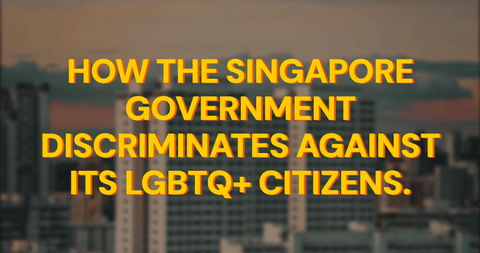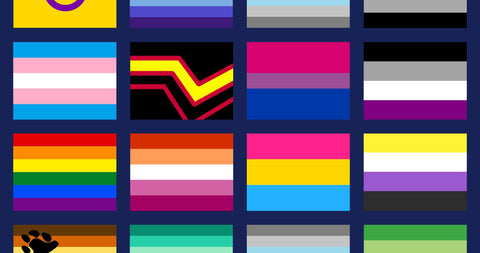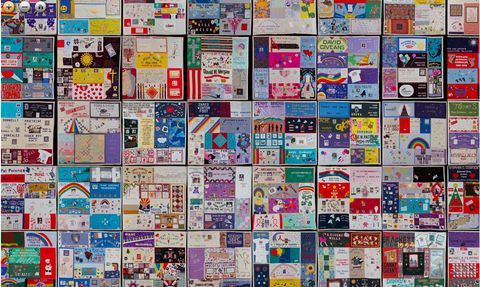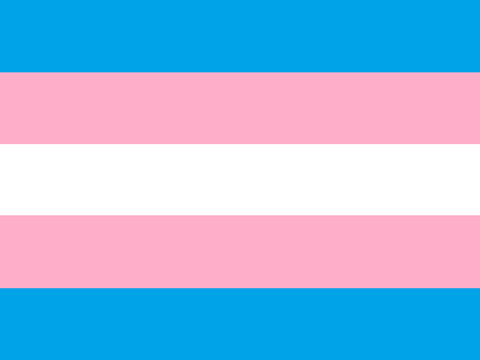Top 10 queer icons in the 1970s // LGBTQ+ History
| Updated on
The Rise of Queer Activism in the 1970s
The 1970s, a defining era for the LGBTQ+ community, marked the rise of queer activism and the emergence of numerous queer icons. It was in this vibrant decade that the community, buoyed by the Stonewall uprising at the end of the preceding decade, found its voice and began to demand recognition, respect, and equality.
The decade was characterised by a marked increase in pride and visibility within the queer community. This surge in activism was, to a significant extent, fuelled by the courage and determination of several prominent figures who used their platforms to advocate for LGBTQ+ rights.
Their courage to live openly and authentically, despite societal prejudice and legal discrimination, inspired many and helped shape the queer community as we know it today. Let's take a moment to acknowledge the significant contributions of these queer icons from the 1970s.
Article continues below
10 Groundbreaking Queer Icons That Defined the 1970s
Following the Stonewall Riots of 1969, the 1970s served as a pivotal decade in the history of queer rights. This period cultivated an environment wherein LGBTQ+ figures began to occupy a more prominent space in the public eye, courageously living their truth and advocating for equality. In the spirit of celebrating these trailblazers, let us delve into the lives of ten groundbreaking queer icons that defined the 1970s.

1. Harvey Milk (1930-1978)
Harvey Milk, the first openly gay elected official in the history of California, is a significant queer icon of the 1970s. He dedicated his life to championing for LGBTQ+ rights, giving a voice to the queer community and validating their struggle in mainstream political discourse.

2. Marsha P. Johnson (1945-1992)
A leading figure in the Stonewall uprising, Marsha P. Johnson's activism extended well into the 1970s. As a transgender woman, Johnson fought tirelessly for trans rights, even co-founding the Street Transvestite Action Revolutionaries (STAR) to support homeless trans youth.
Article continues below

3. David Bowie (1947-2016)
David Bowie, with his flamboyant, gender-bending style, played a significant role in challenging and expanding society's understanding of gender and sexuality during the 1970s. His unabashed self-expression and fluid approach to gender were groundbreaking in mainstream pop culture.

4. Audre Lorde (1934-1992)
Audre Lorde, an openly lesbian black poet and feminist, used her work to address the injustices faced by marginalized groups. Her impactful writings and persistent activism earned her a substantial place in the canon of queer literature.
Article continues below

5. Sylvia Rivera (1951-2002)
Sylvia Rivera, a Latina transgender woman and gay liberation activist, made significant strides in advocating for the rights of transgender individuals. Rivera, along with Marsha P. Johnson, co-founded STAR and remained a constant advocate for trans rights during the 1970s.

6. Freddie Mercury (1946-1991)
Freddie Mercury, the lead vocalist of the rock band Queen, remains a beloved queer icon. His incredible talent, coupled with his unapologetic queerness, continues to inspire and resonate with the LGBTQ+ community.
Freddie Mercury met an untimely demise on 24th November 1991. His death, like his life, continues to impact many within the music industry and LGBTQ+ society. It was in 1987, four years before his death, that Freddie was diagnosed with AIDS, a disease that disproportionately affected the queer community during the 1980s and 1990s. Despite his condition, Mercury continued to create music and perform, exhibiting the same passion and flamboyance he was known for.
Article continues below

7. Angela Davis
Angela Davis, a political activist and scholar, came out as a lesbian in the 1970s and has since been an outspoken advocate for LGBTQ+ rights. Her intersectional approach to activism highlighted the interconnected struggles of sexism, racism, and homophobia.

8. Larry Kramer (1935-2020)
Larry Kramer, an outspoken advocate for AIDS-related issues, co-founded the Gay Men's Health Crisis and later founded ACT UP. His relentless activism and provocative writings challenged the government's response to the AIDS crisis.
Article continues below

9. James Baldwin (1924-1987)
James Baldwin, an openly gay black writer, used his work to explore themes of sexuality and race. His groundbreaking novel "Giovanni's Room," published in the late 1950s, was one of the first novels to openly discuss homosexuality, and his influence continued to resonate throughout the 1970s and beyond.

10. Elton John
Elton John, one of the most successful musicians of the 20th century, came out as bisexual in a 1976 interview with Rolling Stone. His openness about his sexuality and his continued advocacy for LGBTQ+ rights has solidified his status as a queer icon.
These figures, among many others, shaped the landscape of the queer rights movement during the 1970s. Their bravery, resilience, and contributions serve as a reminder of the journey we, as a community, have undertaken and the progress we have made. They continue to inspire us today, reminding us of the power of authenticity and the importance of standing up for our beliefs.
Article continues below

BONUS: 11. Judy Garland (1922-1969)
A name that resonates with countless people across the globe, Judy Garland remains a beloved figure in the LGBTQ+ community. Although she passed away right at the dawn of the 1970s, her impact on the queer community was immense and everlasting. Garland was a beacon of hope and resilience, and her struggles with mental health and substance abuse struck a chord with many gay men who themselves were dealing with societal rejection and personal battles.
The tragic circumstances of Garland's demise are often cited as a catalyst for the Stonewall riots, a pivotal event in the history of the queer rights movement. The mythic connection between her death and the Stonewall riots, although contested, underscores the profound emotional connection the queer community felt with Garland.
Unapologetically Queer: Remembering the Icons of the 1970s
In the era of the 1970s, a time when the world was just beginning to be illuminated by the vibrant hues of the LGBTQ+ Pride movement, a handful of figures emerged as the unabashed defenders and symbols of queer identity, each one an iconic beacon in their own right. These personalities, as varied as the spectrums they represented, played a key role in the 1970s, by challenging societal norms, setting new cultural trends, and fighting for equality and acceptance. Their courage and contributions continue to resonate today.
Article continues below
Queer Icons Throughout the Decades
Enjoyed this piece about the incredible queer icons of the 1970s? We've got plenty more where that came from! Check out these deep dives into the vibrant LGBTQ+ history through every decade:





